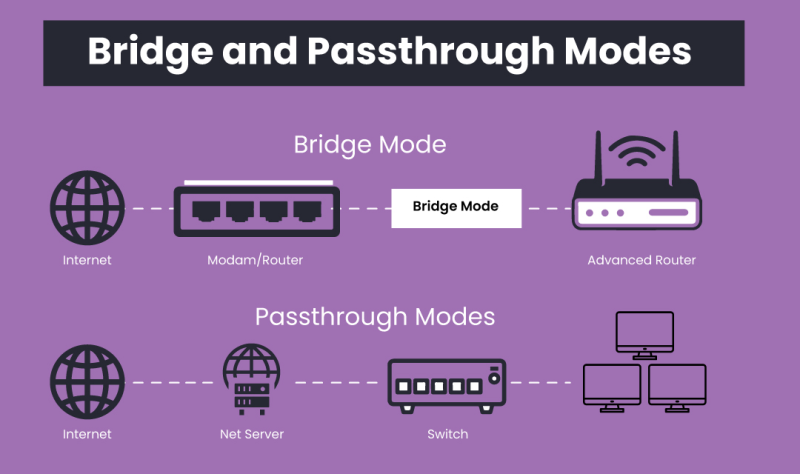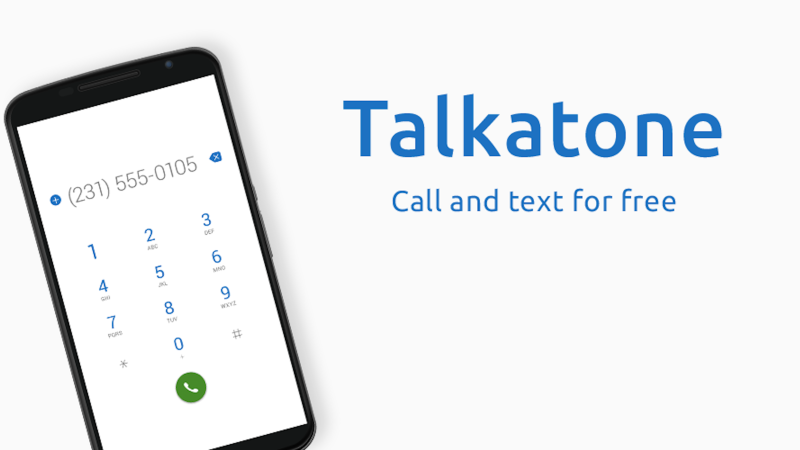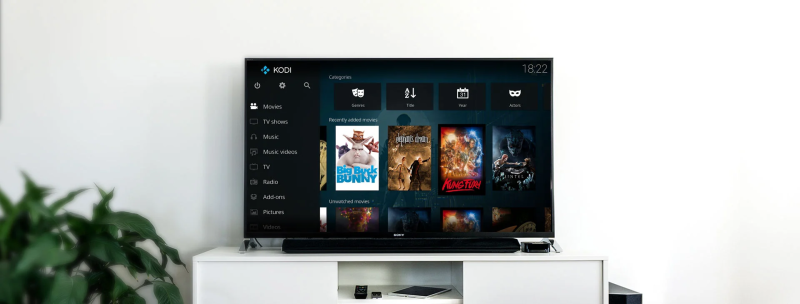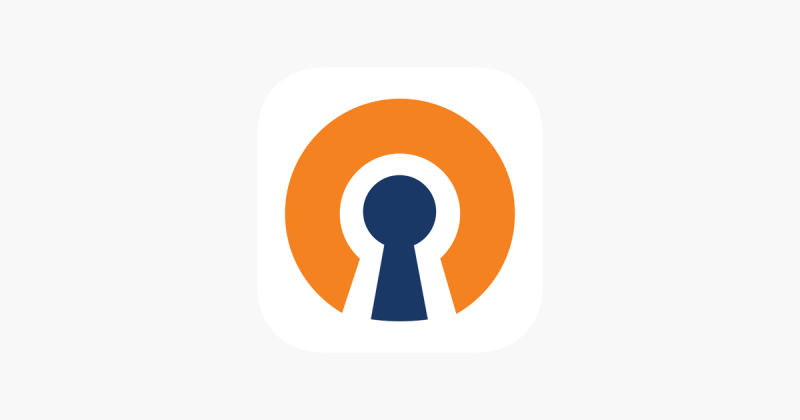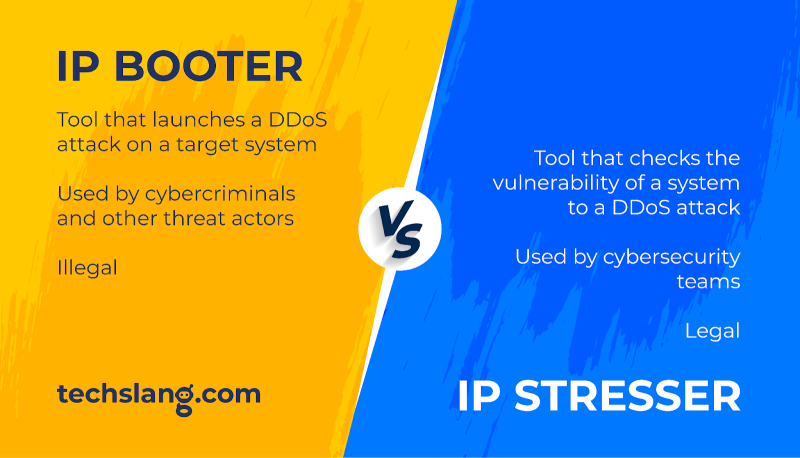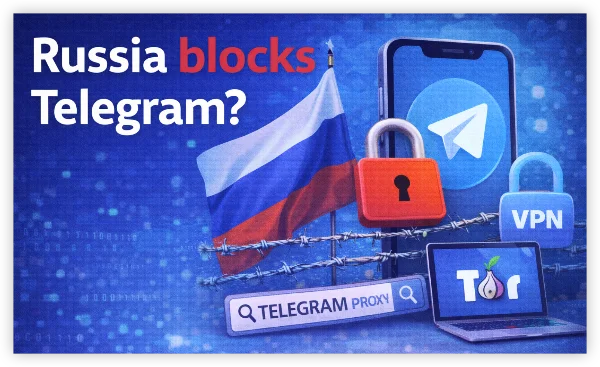What Is Starlink?
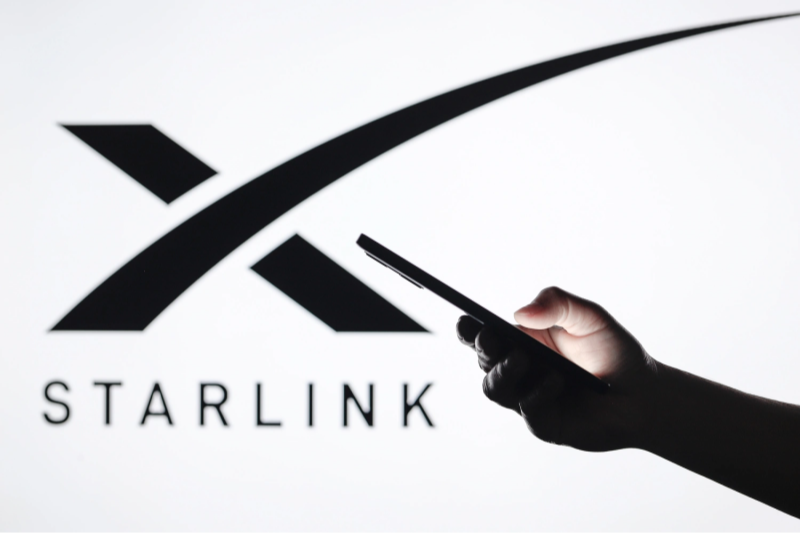
Starlink is a satellite‑based broadband service operated by SpaceX. Rather than relying on ground infrastructure, Starlink uses a constellation of over 7,600 low‑Earth orbit (LEO) satellites to beam internet directly to user terminals (dishes) around the globe.
Key Starlink Specs:
-
Download Speeds: Typically 25–220 Mbps, with medians around 100 Mbps—enough for HD video streaming and online gaming.
-
Upload Speeds: Generally between 5–20 Mbps, supporting video calls and file uploads.
-
Latency: 20–60 ms in most land regions, rising above 100 ms in extreme remote areas (e.g., oceans, polar zones).
-
Global Coverage: Active in over 130 countries, with service expanding rapidly.
Starlink’s combination of speed and latency rivals many terrestrial broadband services, making it ideal for rural internet, in‑flight Wi‑Fi, and mobile deployments.
If you're in India, we highly recommend using an India VPN. not only that, but we have free VPN for Mac - UFO VPN as well as UFO VPN for PC - best free VPN, regardless of whether you're using Apple or Windows.
Why Do I Need a VPN for Starlink?
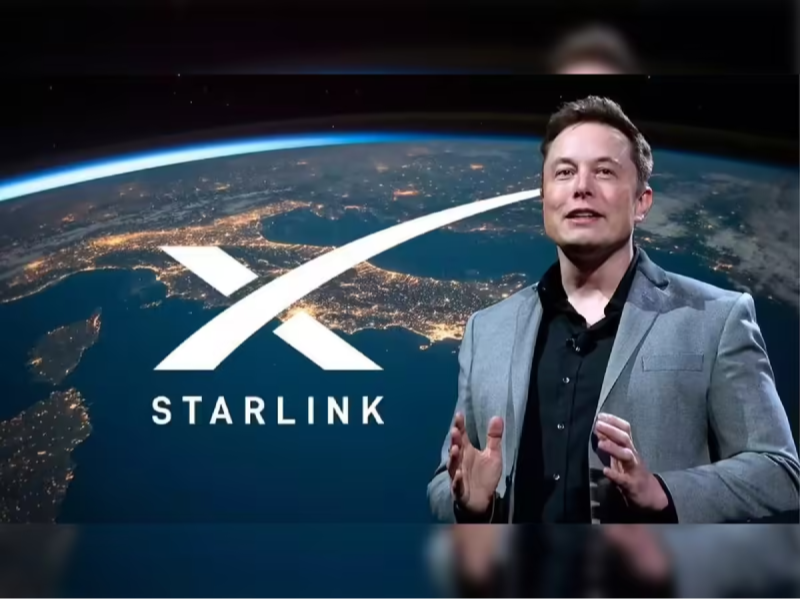
Despite its strengths, Starlink users face several network‑level risks and limitations that a VPN can address:
-
Privacy & Anonymity:
-
Starlink routes traffic through satellite ground stations; without encryption, ISPs or network observers could log your browsing habits. UFO VPN: a free proxy VPN encrypts all data, hiding your activity from prying eyes.
-
-
Bypass Geo‑Blocks:
-
Some streaming services or websites restrict content by country IP. A Starlink VPN lets you appear in any region, unlocking global libraries and avoiding licensing blocks.
-
-
Avoid ISP Throttling:
-
Although Starlink generally doesn’t throttle, some gateway nodes or partnered ISPs might deprioritize certain traffic (e.g., torrents, streaming). VPN encryption prevents deep‑packet inspection, ensuring consistent throughput.
-
-
Secure Public & Shared Networks:
-
When sharing Starlink via public hotspots or lodging routers, a VPN protects all downstream devices from local network attacks and eavesdropping.
-
-
Stable Gaming & VoIP:
-
By routing through optimized VPN servers, you may achieve more consistent latency and fewer packet losses—crucial for real‑time applications.
-
Does VPN Slow Down My Starlink Speed?
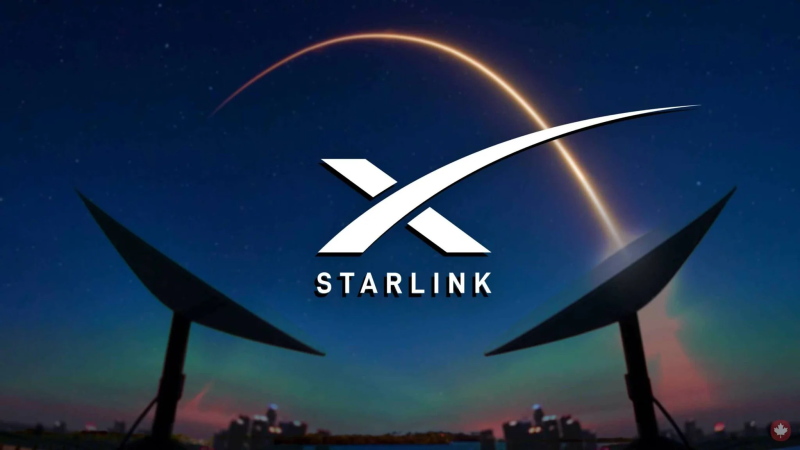
A common concern is that adding VPN encryption will degrade your Starlink performance. In practice:
-
Encryption Overhead:
-
VPNs encrypt and decrypt packets, adding minimal CPU load on modern routers or devices. Premium services like UFO VPN use high‑efficiency protocols (e.g., WireGuard) to minimize this overhead.
-
-
Server Proximity:
-
Choosing a VPN server close to your physical location or to Starlink’s ground stations reduces extra routing latency. UFO VPN’s global network includes servers optimized for low latency.
-
-
Speed Test Data:
-
Starlink Speedtest users report median downloads of 104.7 Mbps and uploads of 14.8 Mbps. In independent tests, top VPNs maintain over 90% of raw ISP speeds on similar networks.
-
-
Real‑World Impact:
-
With UFO VPN, most users see <10% speed reduction on Starlink—meaning you still enjoy 90–200 Mbps downloads and sub‑80 ms latency for gaming.
-
Conclusion: While any VPN introduces some overhead, a well‑designed service like UFO VPN has negligible impact on Starlink speeds, preserving high throughput and low latency.
How to Get a Starlink VPN?
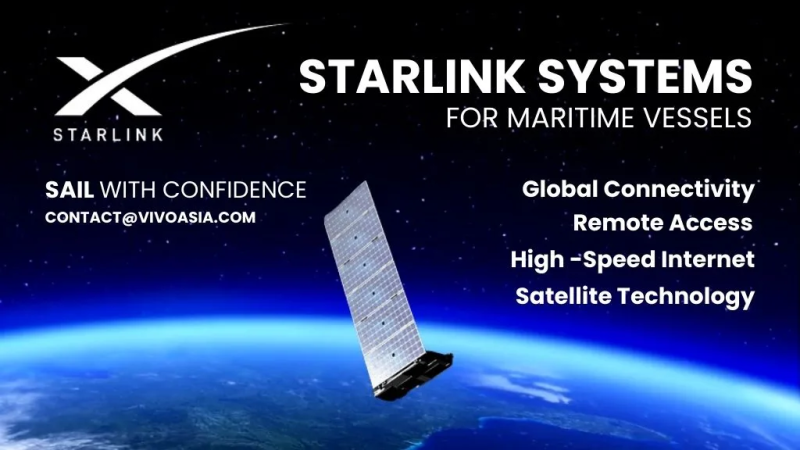
Setting up UFO VPN on your Starlink network is straightforward:
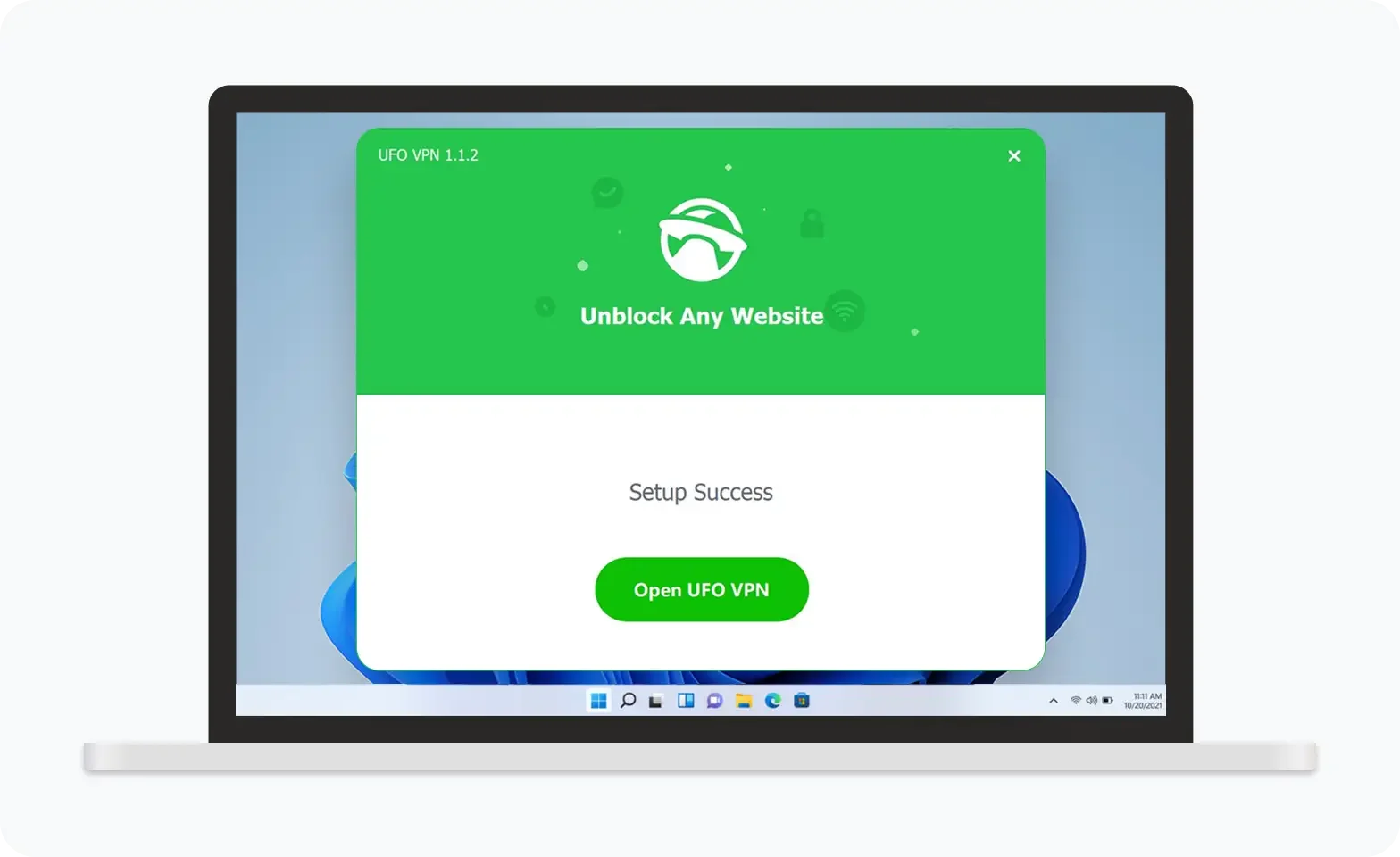
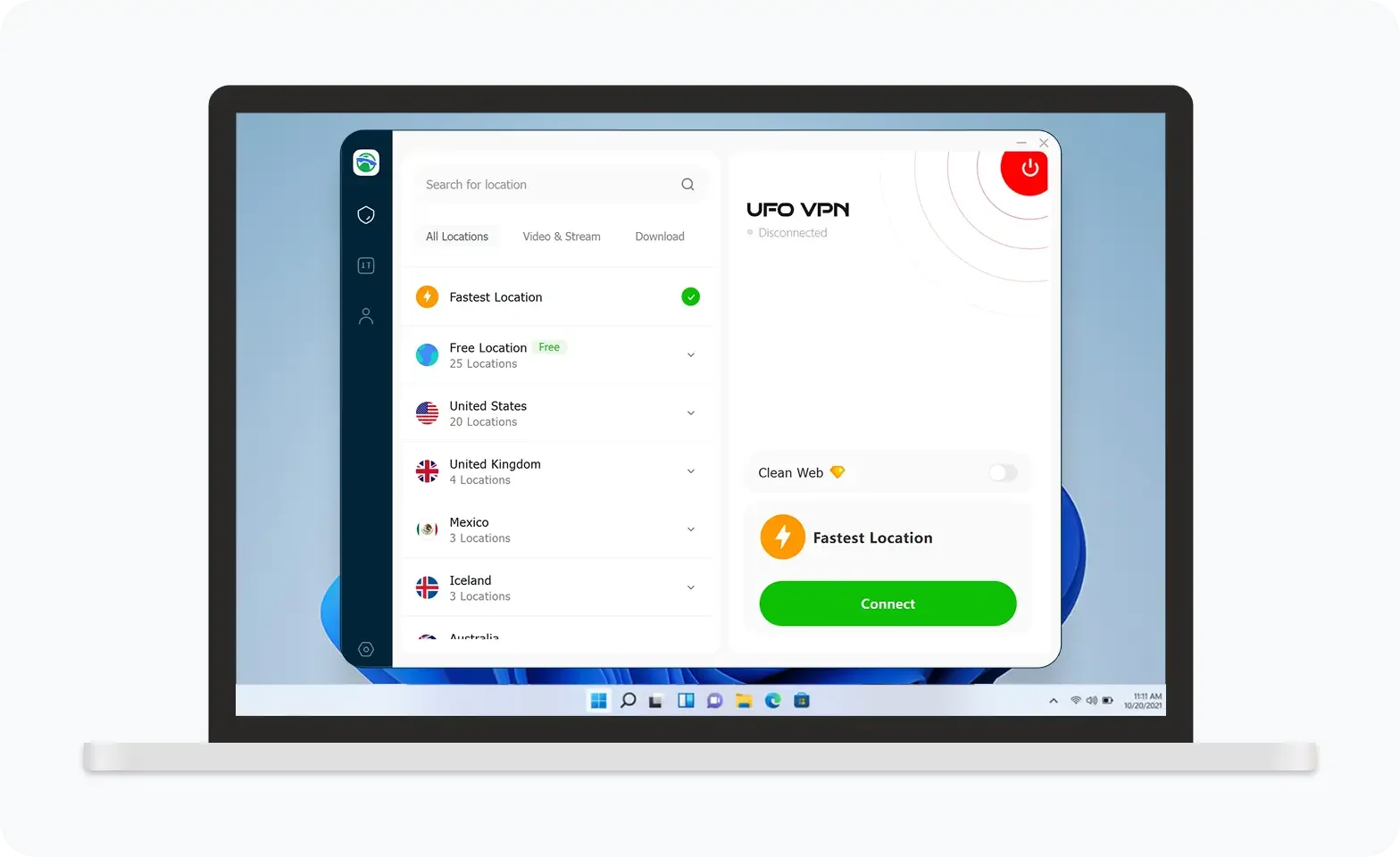
UFO VPN is an all-in-one VPN that offers unlimited access to 4D streaming like Netlfix, Disney Plus, no-ping gaming as PUBG, Roblox, CODM and social networking for YouTube, X, Facebook and more.
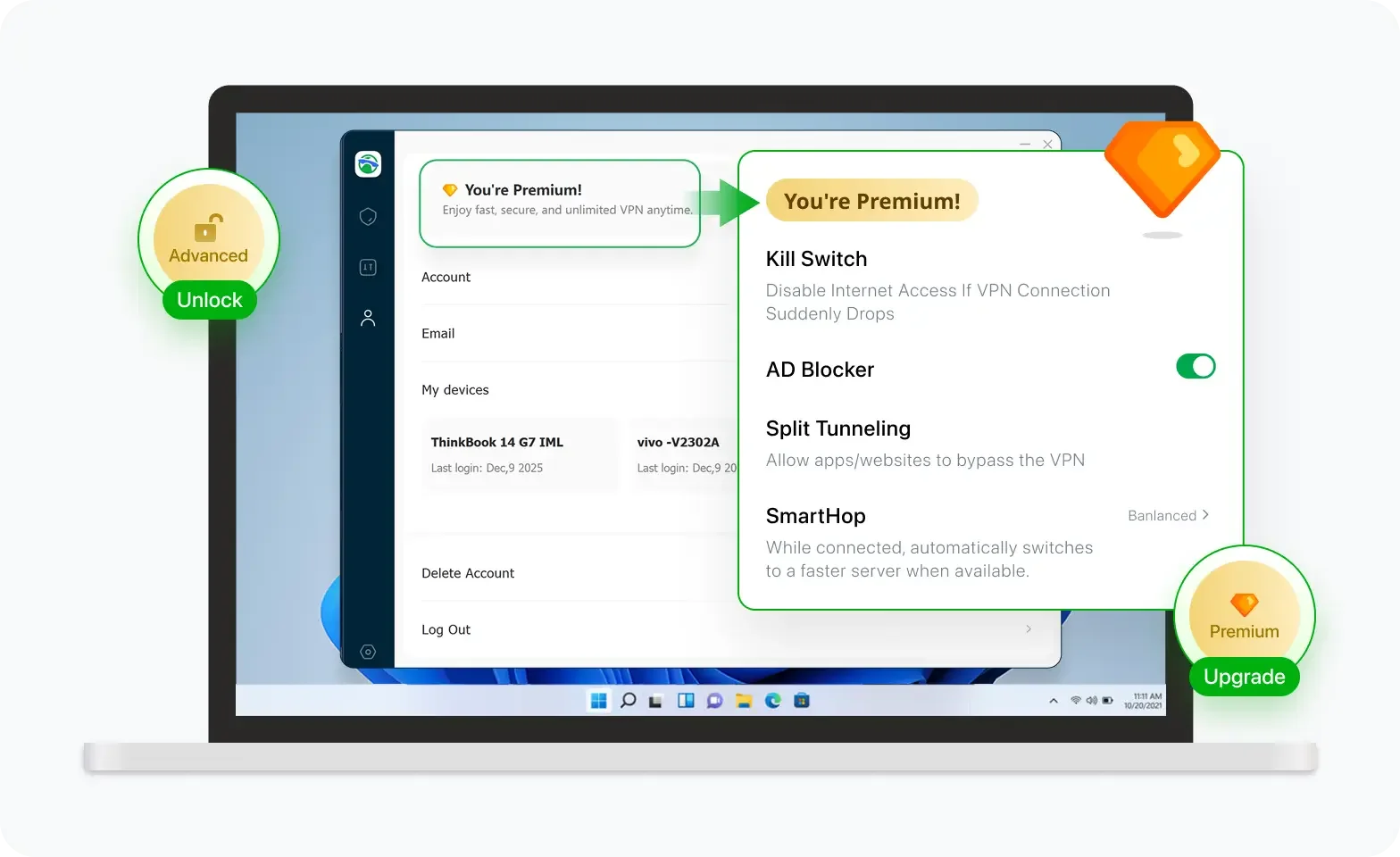
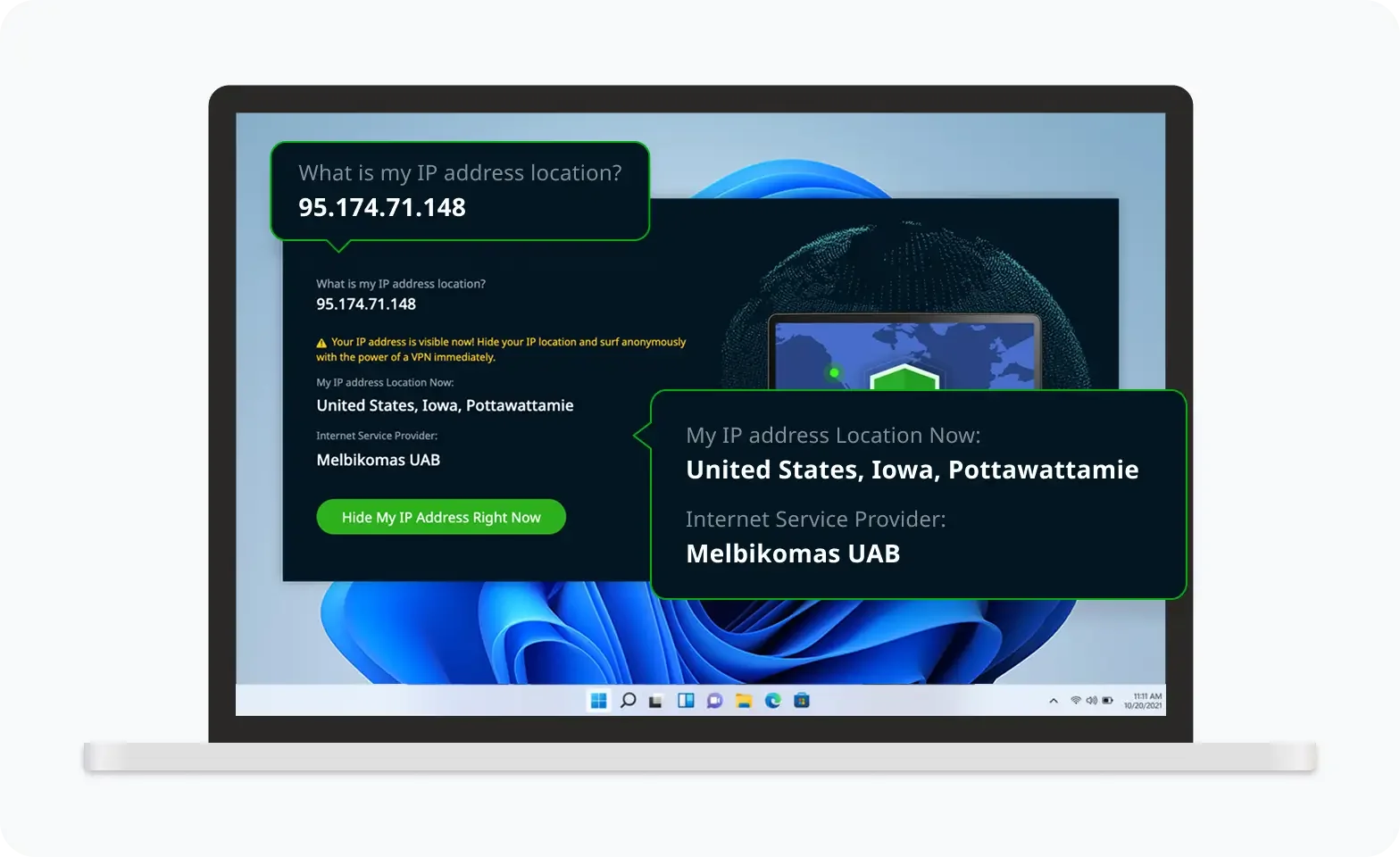
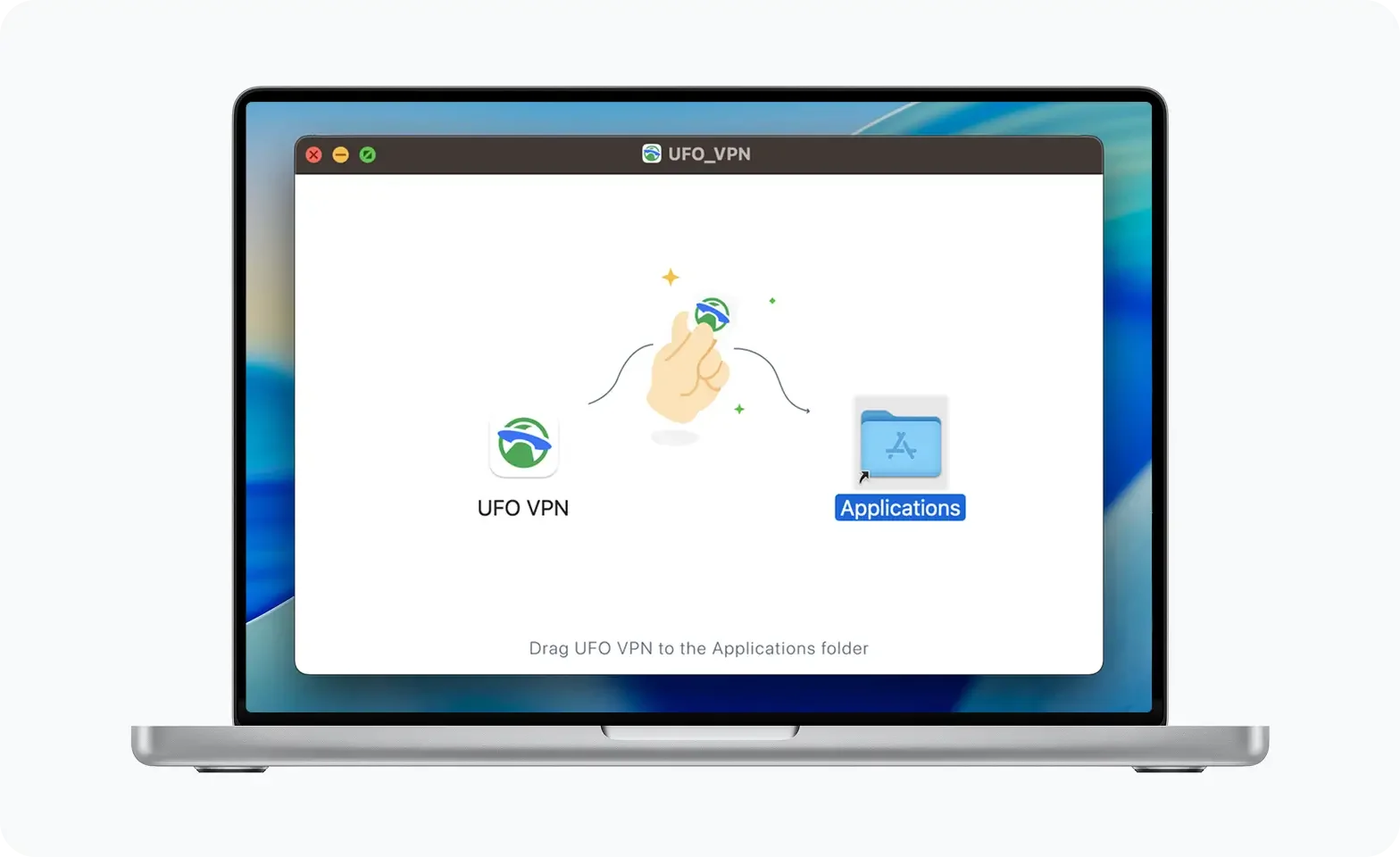
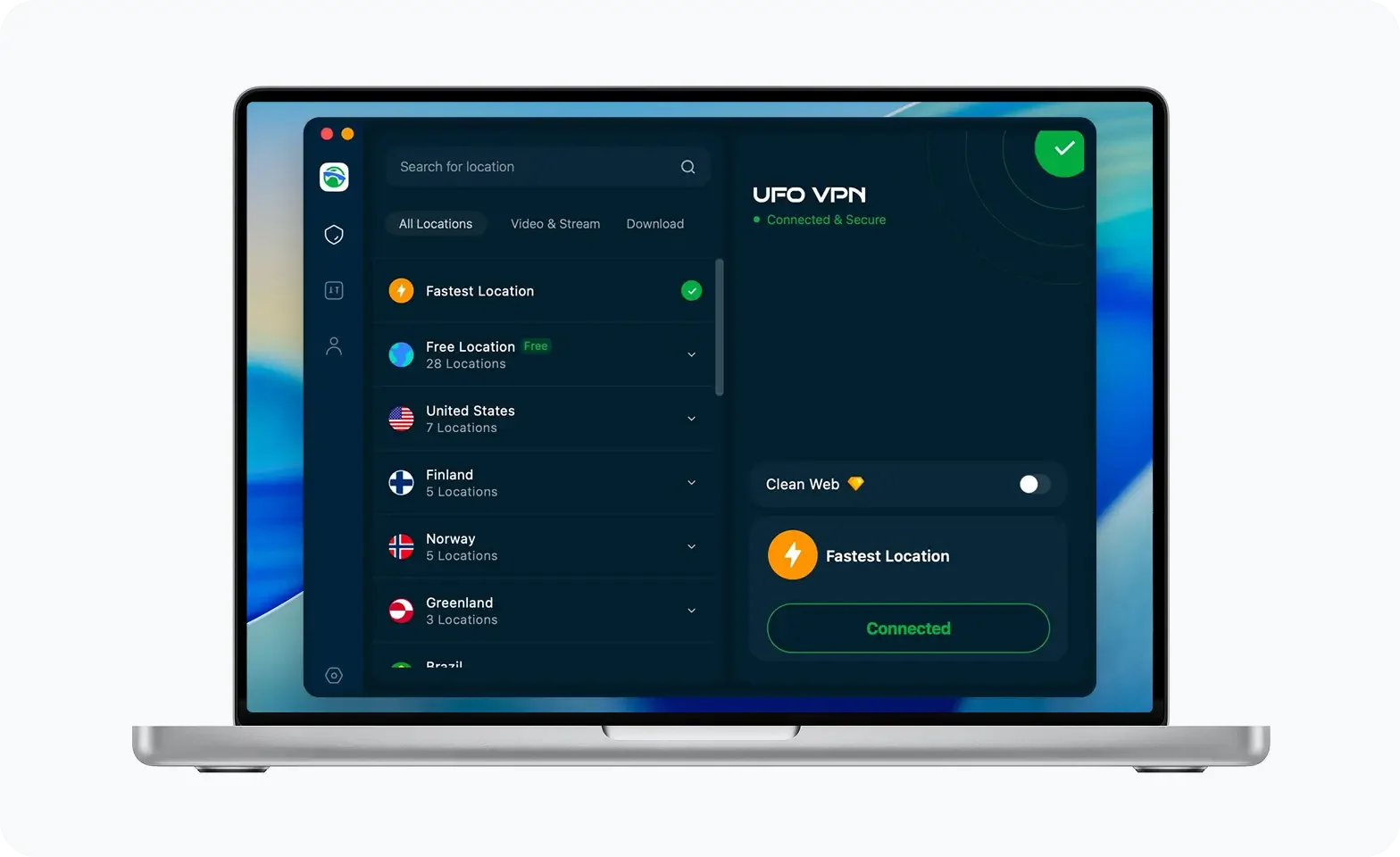
Unlock Pro Features
If you have upgraded to premium plan , feel free to enjoy premium servers for 4K streaming and advanced features like Kill Switch, Split Tunneling, and gaming acceleration. Your Mac is now fully optimized and protected. Inaddition to basic functions, we recommend you turn on

Verify Your IP Now
Use UFO VPN's " What is My IP " feature to see your new IP and location. This confirms your connection is secure, anonymous, and ready for safe browsing online anywhere at any time.

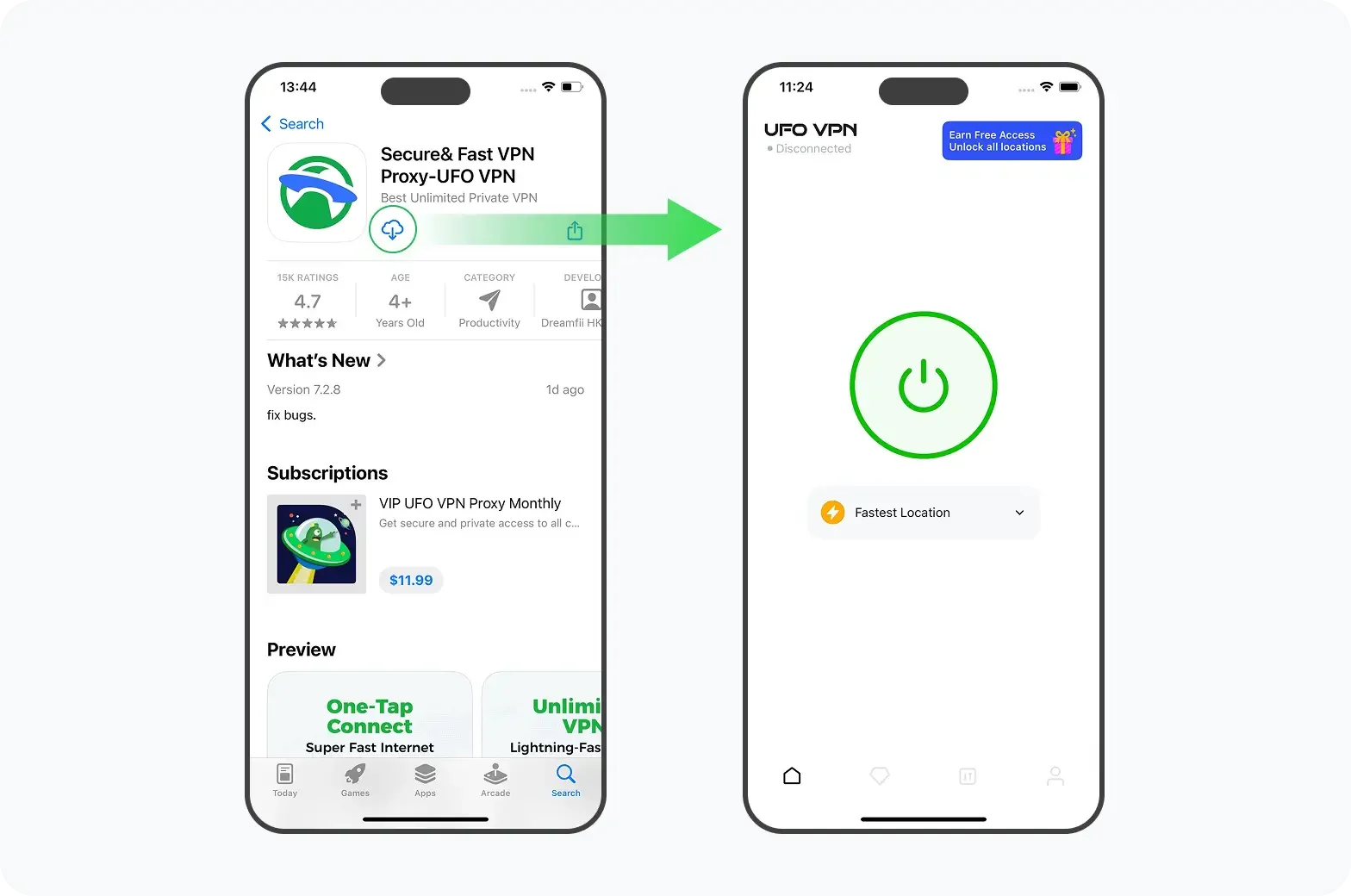
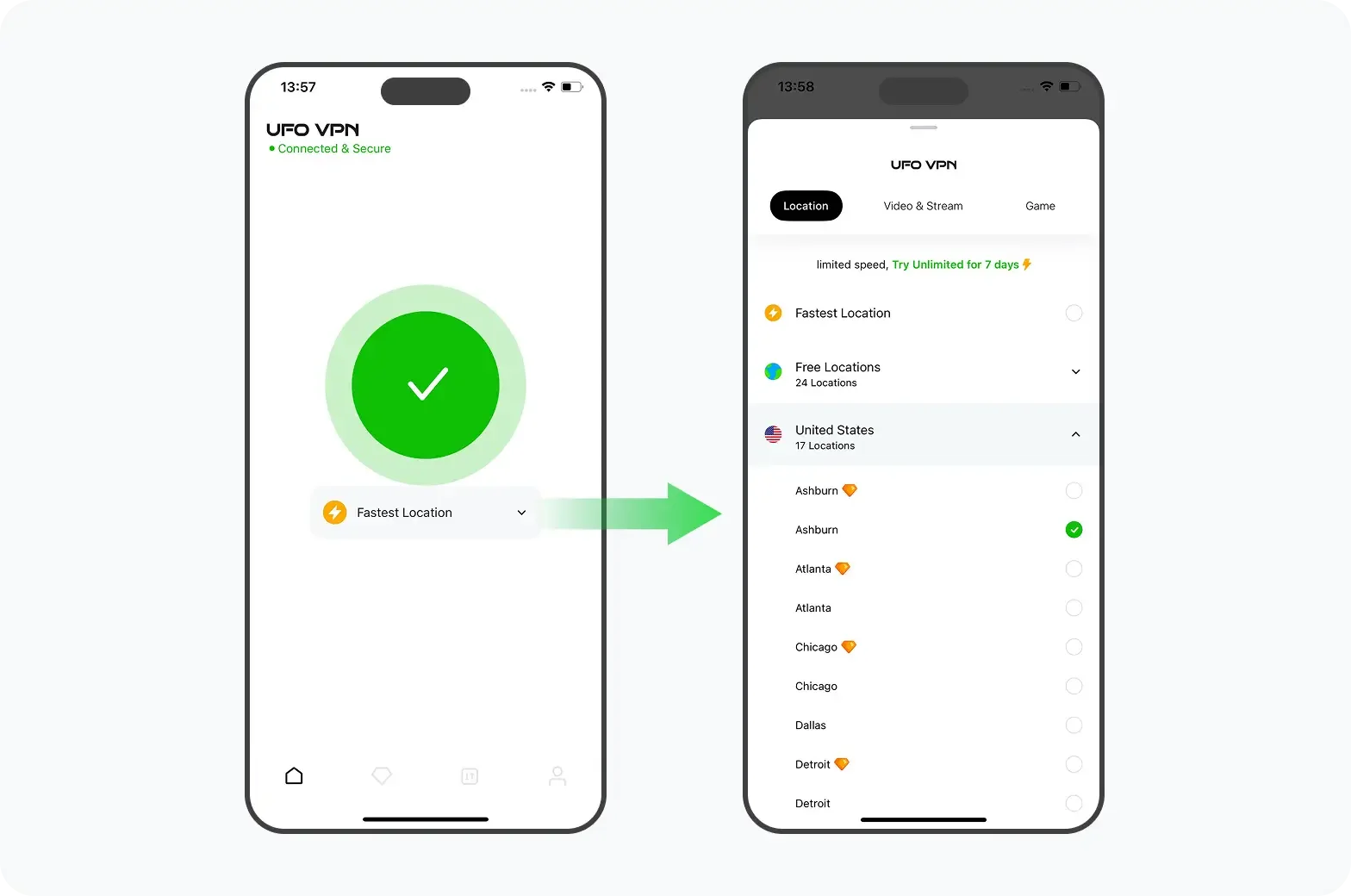
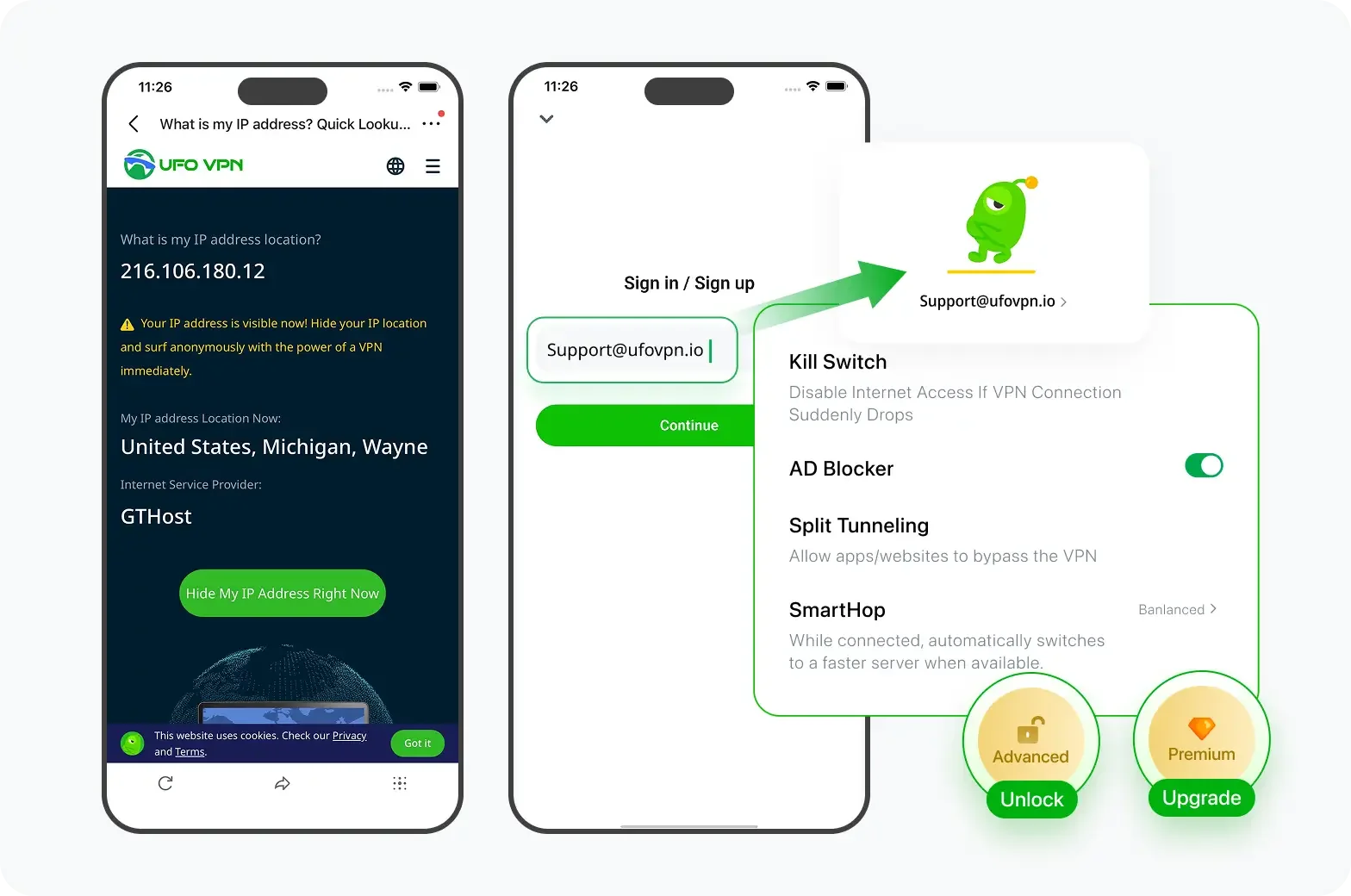
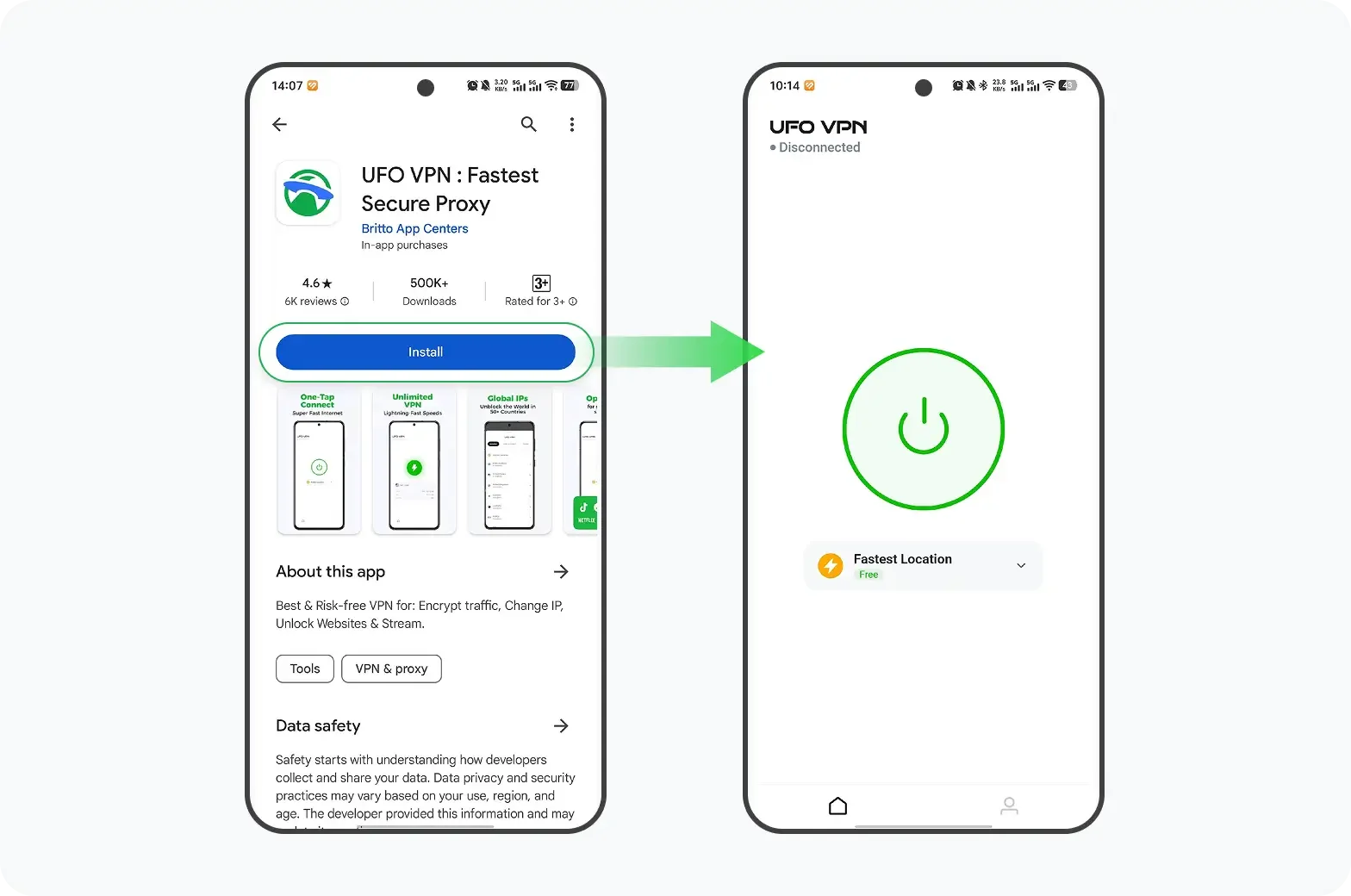
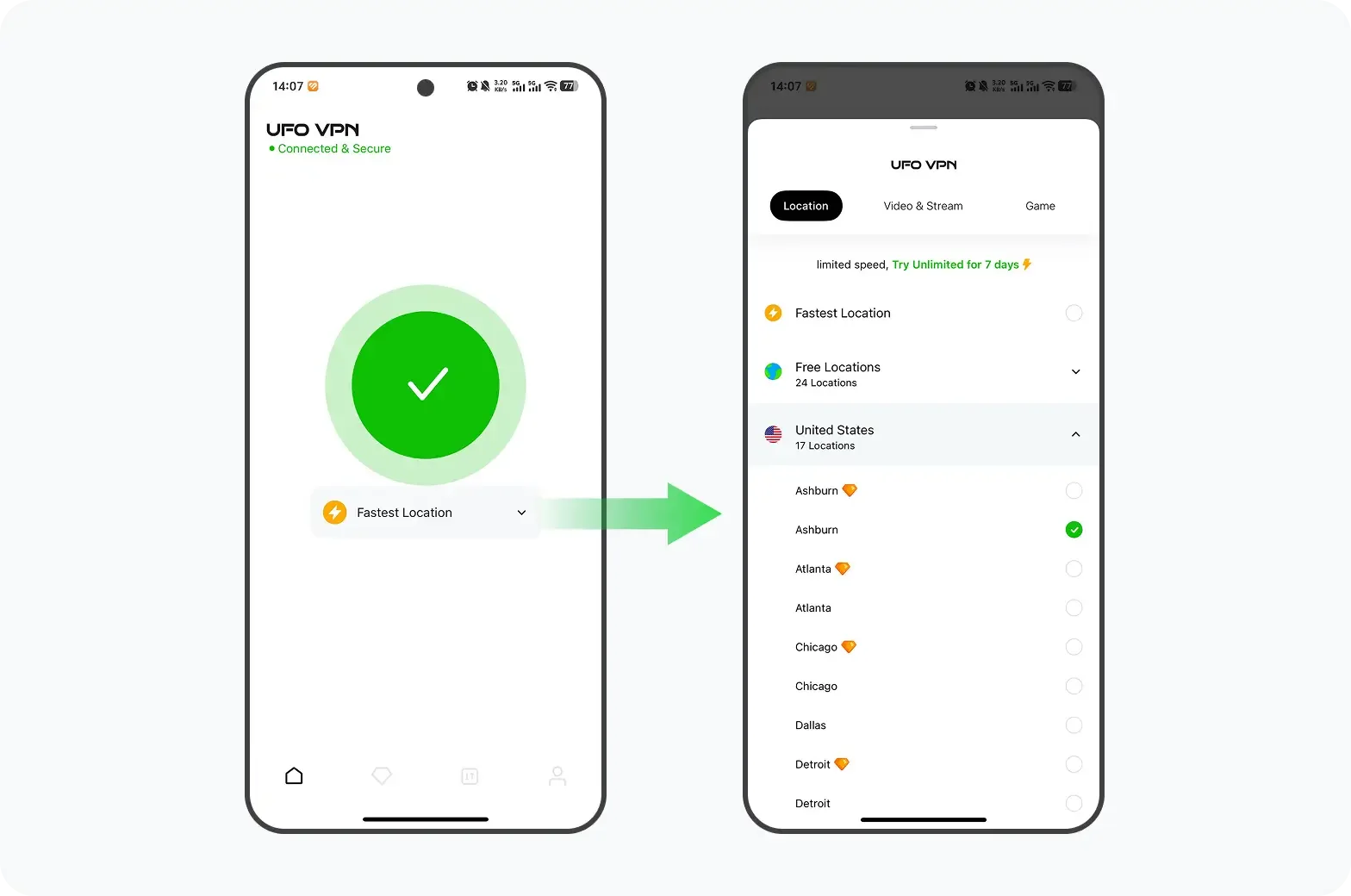
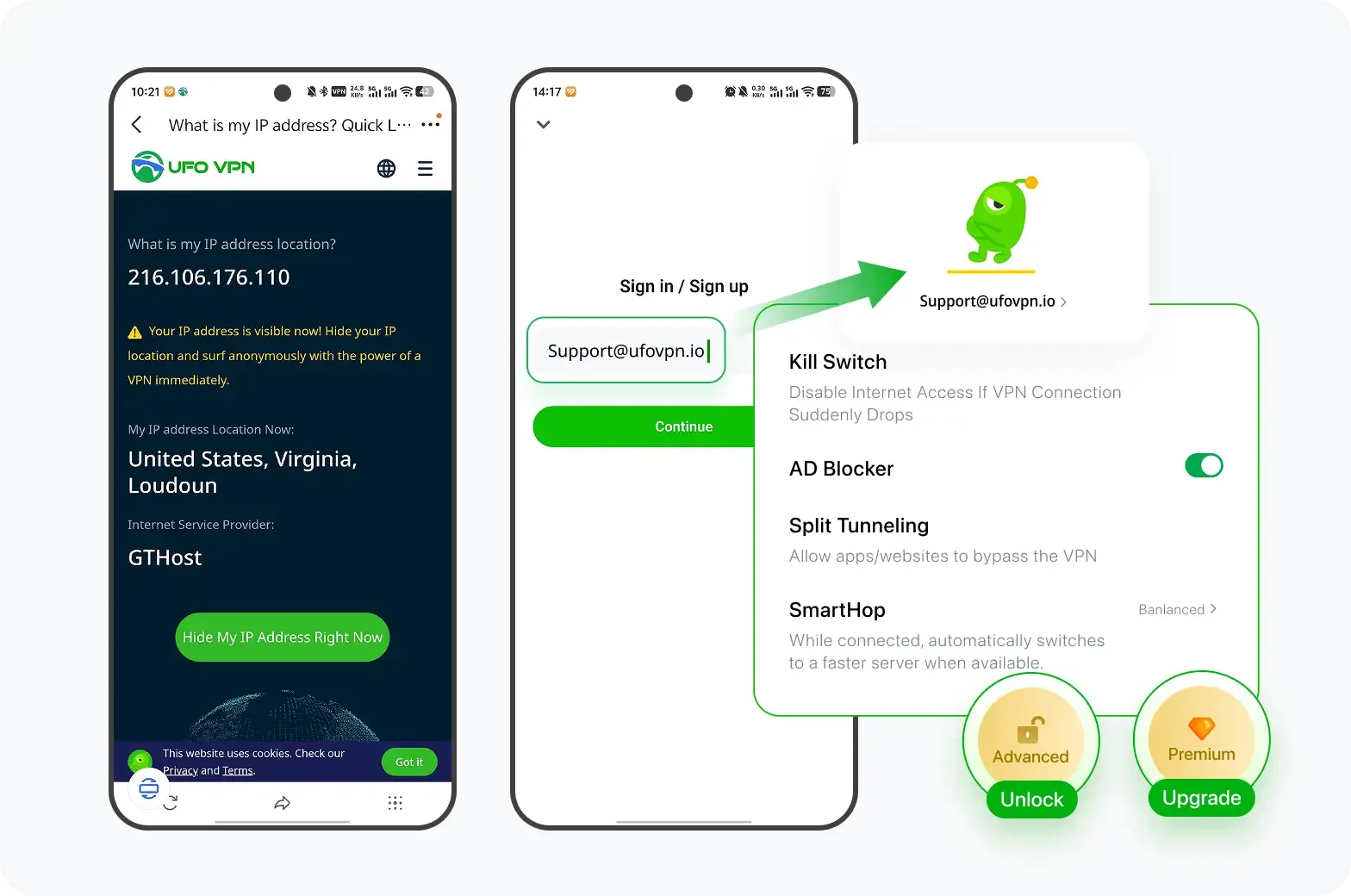
With UFO VPN active, your Starlink traffic gains privacy, access flexibility, and improved reliability—whether streaming, gaming, or browsing.
FAQs
Q1: Can I run a VPN on my Starlink router natively?
Yes—if your router firmware supports VPN client configuration (e.g., OpenWrt). Otherwise, install UFO VPN on individual devices.
Q2: Does Starlink allow VPN usage?
Absolutely. Starlink has no policy against VPNs; encryption simply routes through its network like any other traffic.
Q3: Which VPN protocol is best for Starlink?
WireGuard (UDP) offers the best balance of speed and security. UFO VPN supports WireGuard along with OpenVPN.
Q4: How to choose the best VPN server location?
Select a server near Starlink’s PoP (point of presence) or your country. For gaming, test servers to find the lowest ping.
Q5: Will a VPN fix packet loss on Starlink?
If packet loss stems from ISP routing, a VPN may route around problematic nodes. However, physical obstructions or misaligned dishes require Starlink support.
Q6: Can I use free VPNs with Starlink?
Free VPNs often cap speeds and bandwidth, and have fewer servers—leading to solid performance loss on Starlink. Premium services like UFO VPN ensure reliable high‑speed access.

